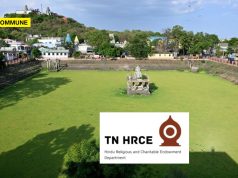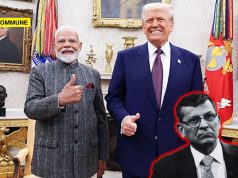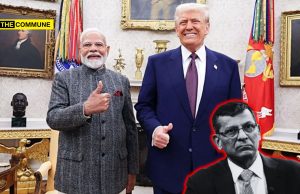
In a startling revelation, senior lawyer Mahesh Jethmalani has claimed a potential Chinese connection behind Hindenburg Research’s damaging report on the Adani Group, which led to a significant decline in the conglomerate’s share prices. Jethmalani, through a series of social media posts, implicated American businessman Mark Kingdon and his wife Anla Cheng in orchestrating the adverse report.
The Allegations
The disclosures implicated Kingdon Capital, which purportedly collaborated with Kotak Mahindra Bank to short-sell Adani stocks. Hindenburg’s response to SEBI revealed that Hindenburg and Kingdon Capital teamed up to execute a strategic plan against the Adani Group, profiting from the short-selling of its stocks.
Commissioning Of The Report
Hindenburg Research, a well-known short-selling research agency, was allegedly hired by Mark Kingdon to compile a report on the Adani Group. This report, once published, resulted in a steep fall in Adani’s share prices.
Who Is Kingdon?
Mark Kingdon, the founder and owner of Kingdon Capital, a US-based investment firm managing approximately $623 million in assets. His “philanthropic efforts” include supporting organizations like Harlem Children’s Zone, which aids underprivileged children, and the China Institute, which promotes Chinese culture.
Alleged Role of Kotak Mahindra
Kingdon reportedly approached Kotak Mahindra’s International Investment arm (KMIL) to set up an offshore fund and accounts specifically for trading in Adani shares. This led to the creation of the Kotak India Opportunity Fund (KIOF), which took substantial short positions in Adani shares via the Mauritius route before the Hindenburg report was published. The trade was financed by $40 million from Kingdon’s Master Fund, in which the Kingdon family holds significant shares, including his wife Anla Cheng.
Anla Cheng’s Alleged Chinese Connections
Anla Cheng, a Chinese American, has been described by Jethmalani as an influential lobbyist for Chinese interests in the United States. She was the CEO of SupChina, a media initiative accused of subversion in favor of Chinese interests. After a whistleblower’s testimony before the U.S. Congress, SupChina rebranded as The China Project, which later shut down amid allegations of having ties with the Chinese Communist Party (CCP).
The whistleblower Shannon Van Sant in her statement claimed that Cheng pushed her to produce journalism favorable to China.
She also stated that Cheng instructed Van Sant to promote a book by Peter Walker, an American consultant favored by Chinese state media. Additionally, Cheng informed the staff about a tip from the China Association for Science and Technology regarding a Chinese scientist allegedly being wrongly investigated in the U.S. Cheng told her staff, “We have to protect him.” Van Sant believed that Cheng’s instructions were influenced by her connections with Chinese organizations and interests. Van Sant was fired the same day she expressed discomfort about Cheng’s instructions, which she felt compromised journalistic integrity.Cheng’s push to promote certain content was also linked to fundraising efforts, aiming to gain support from donors and readers.
For those who want to learn about accomplished #Chinese spy #AnlaCheng who along with her husband #MarkKingdon hired #Hindenburg for a research report on #Adani, engaged the services of Kotak to facilitate a trading account to short sell Adani shares; who made millions of dollars… pic.twitter.com/XhA9lfMFE2
— Mahesh Jethmalani (@JethmalaniM) July 5, 2024
Key Questions And Concerns
Jethmalani raised several pressing issues that he believes need thorough investigation:
– How the Kingdons were introduced to KMIL? What due diligence was conducted by KMIL regarding the Kingdons, and whether KMIL participated in the short sell as a principal?
– Were Indian politicians, businessmen, and financial intermediaries who assisted Hindenburg in preparing and publishing the report were aware of the short-selling motives and whether they benefitted financially from this scheme?
– Did KMIL and the involved Indian actors knew about the alleged Chinese connection behind Hindenburg?
The allegations suggest that the Kingdons, particularly Anla Cheng, with her purported connections to Chinese lobbying efforts, orchestrated a significant financial maneuver to undermine the Adani Group. Jethmalani accused them of not only eroding the market cap of Adani but also financially devastating numerous Indian retail investors. He insinuated that these actions were designed to advance Chinese strategic interests by crippling an Indian corporate competitor that had outperformed Chinese state enterprises in various international projects.
Jethmalani emphasized the need for SEBI to scrutinize the connections and financial transactions involved, particularly the roles of KMIL and other Indian participants in the short-selling strategy.
Here’s a huge smoking gun in the sordid episode of the short sale of #Adani shares by #Hindenburg. Pursuant to #SEBI's notice to Hindenburg, the following facts emerge:
1. Hindenburg – a research agency – was hired by American businessman #MarkKingdon to prepare a report on the… https://t.co/yar0uEuarm— Mahesh Jethmalani (@JethmalaniM) July 4, 2024
Subscribe to our channels on Telegram, WhatsApp, and Instagram and get the best stories of the day delivered to you personally.




